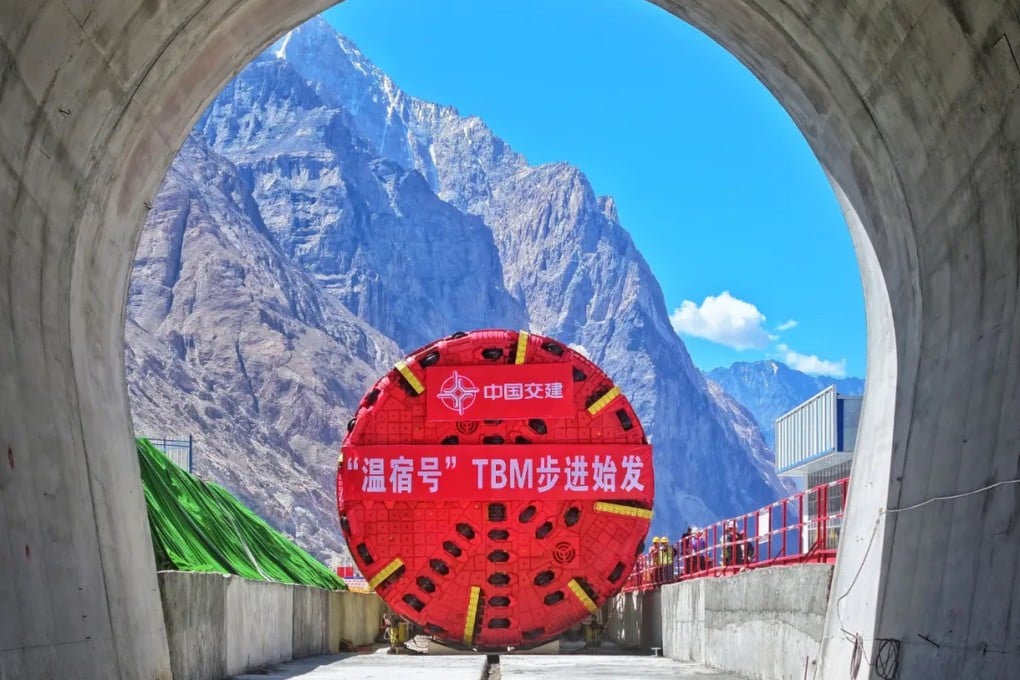Chinese crews drill through Xinjiang glacial area for ‘super-long’ highway tunnel
- Huge boring machine to cut passage for crucial north-south link providing vital connection to Central Asia

A Chinese construction team in charge of excavating a tunnel in one of the longest mountain ranges in the world has embarked on the most challenging part of the mega project – slicing several kilometres through a glacial area.
The construction team on Wednesday launched a domestically built tunnel boring machine (TBM) to drill the main passageway for the tunnel, state news agency Xinhua reported.
The 1,800 tonne machine, dubbed “Wensu”, was designed and developed by the state-owned China Communications Construction Company. It is 235 metres (771 feet) long and has a diameter of 8.83 metres, making it the widest such machine in use among the tunnel boring projects currently under way at Tianshan, according to Communist Party mouthpiece People’s Daily.
About two-thirds of the 2,500km Tianshan range – which stretches into Kyrgyzstan, Uzbekistan and Kazakhstan in Central Asia – is located in Xinjiang. Its average altitude is about 4,000 metres (over 13,000 feet).
The West Tianshan tunnel will be China’s first to cut a straight path through a glacial area. More than three-quarters, or nearly 12km, will run through rock under 1km of ice, with some sections under as much as 2.4km of ice.
Wensu is also the most advanced TBM to traverse the Tianshan range, a seismically active region with average temperatures of about minus 23 degrees Celsius (minus 10 Fahrenheit) in the winter. The geological conditions present unique safety and environmental challenges for tunnel boring, including water inrush, rock bursts and variable ground temperatures, Xinhua reported in April.